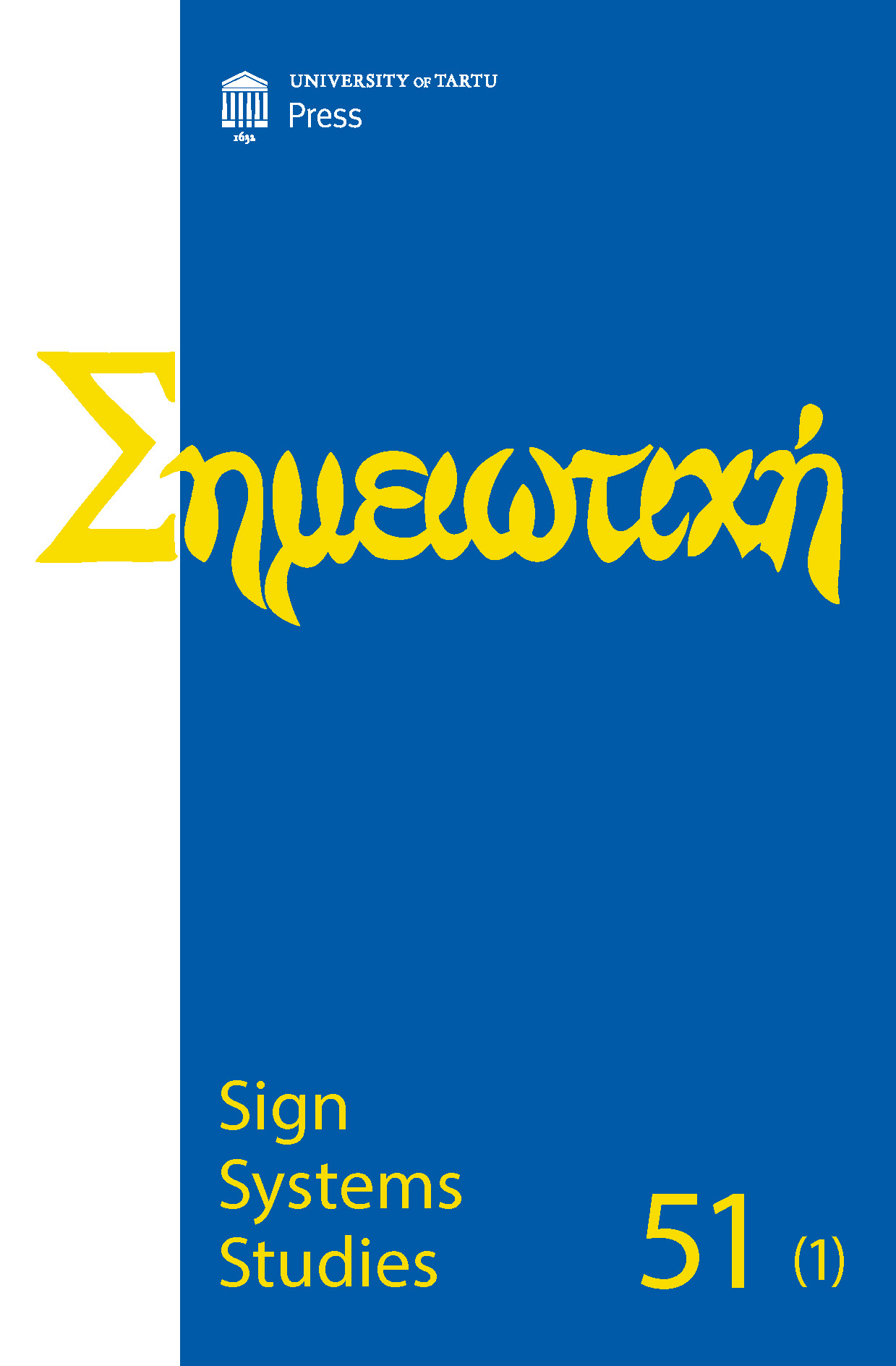Meanings for the degrowth society: From the Great Acceleration to the semiosis of the living
DOI:
https://doi.org/10.12697/SSS.2023.51.1.07Keywords:
ecosemiotics, degrowth movement, the Great Acceleration, sign object, the semiosis of the living, semiotic ground, ecosemiosphereAbstract
The global ecological crisis has often been related to the so-called Great Acceleration, i.e. the rapid growth of many social metrics (population size, gross domestic product, energy usage, etc.) from the mid-20th century onwards. The degrowth movement has opposed the great economic expansion by advocating for a simplified society and decreased human use of energy and natural resources. In this paper, I will analyse the semiotic aspects of this process as a semiotic acceleration, and argue that transformation into the degrowth society can be supported by the restructuration of human semiotic systems towards more coherence and better connectivity with ecological processes. The semiotic acceleration manifests as a massive multiplication and spread of abstract signs and information content that is detached from ecological and material processes, and lacks value-based organization. To support the degrowth transformation, I propose the semiosis of the living as an understanding that significance arises first and foremost from semiotic participation in specific lived ecologies (cultural, ecological, and material), placement and rootedness of the given act of semiosis in the particular semiotic fabric and the unfolding of the world. The semiosis of the living re-grounds the human semiotic processes in the patterns of iconic and indexical relations shared by humans and non-human species alike.


